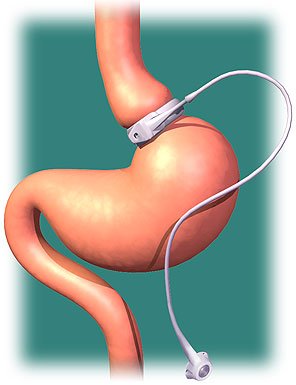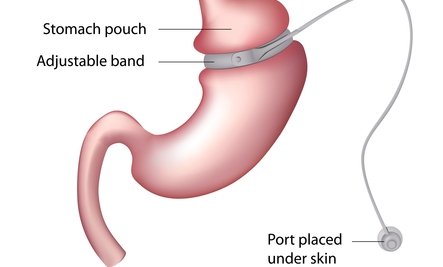Lap band surgery is a procedure during which an adjustable band is used around the top part of the stomach. This means that a small pouch is created that stops a patient from consuming a lot of food. Being approved for a lap band includes a lengthy consultation period, and you will also need to go through various lab test and pre-operative examinations. Many different lap bands exist today as well, so you will need to consult with your surgeon in terms of which one you are and are not suitable for.
Who Is Eligible?
People who are dependent on drugs or alcohol are eligible for this type of procedure. Additionally, those who have hypothyroidism are also often not eligible. However, this does not mean everybody else is. Ideal patients are those who:
- Have a BMI of at least 40.
- Those who are at least 100 pounds overweight.
- Those who have a BMI of between 30 and 40 and have co-morbidities (arthritis, sleep apnea, diabetes or high blood pressure).
- People who are between 18 and 55 (with some exceptions).
How it Works
Essentially, a lap band is an inflatable prosthetic device made from silicone. Using keyhole surgery, it is wrapped around the top of the stomach. Using a small access port just underneath the skin, the band is then inflated. Then, a saline solution is introduced so that the membrane of the port is not damaged. Because the band is adjustable, people are able to have it deflated or further inflated if their situation changes. For instance, someone who falls pregnant may have it deflated somewhat.
Because the intestines are left untouched, there is no risk of gastric dumping syndrome. Additionally, there is no need to take vitamin B12 or calcium supplements or injections. However, patients do have to think about their own lifestyle choices. They must learn to eat a healthy, balanced and nutritious diet. They should also eat more slowly and make sure that they chew their food properly.
In some cases, people feel that they can still eat quite a lot before they are “filled” for the first time. In fact, this is one of the advantages of the surgery, because it means that weight loss is not so rapid that it cannot be managed. Exact weight loss varies tremendously, however, and it depends on how committed patients are and how well they take to the procedure.
Complications
As with any type of surgery, complications are possible. Commonly, lap band patients regurgitate their food, which is known as “productive burping”. While common, it is not normal and should be seen to as soon as possible.
Less frequently, the passage at the bottom part of the stomach becomes blocked. This is common in those who do not chew their food properly. Other complications include abnormal stools, diarrhea, constipation, stomach obstruction, gastric reflux, vomiting and nausea.
Choosing to have a lap band is a decision not to be taken lightly. Extensive consultation both pre and post-operative will be required in order for it to be a success.

